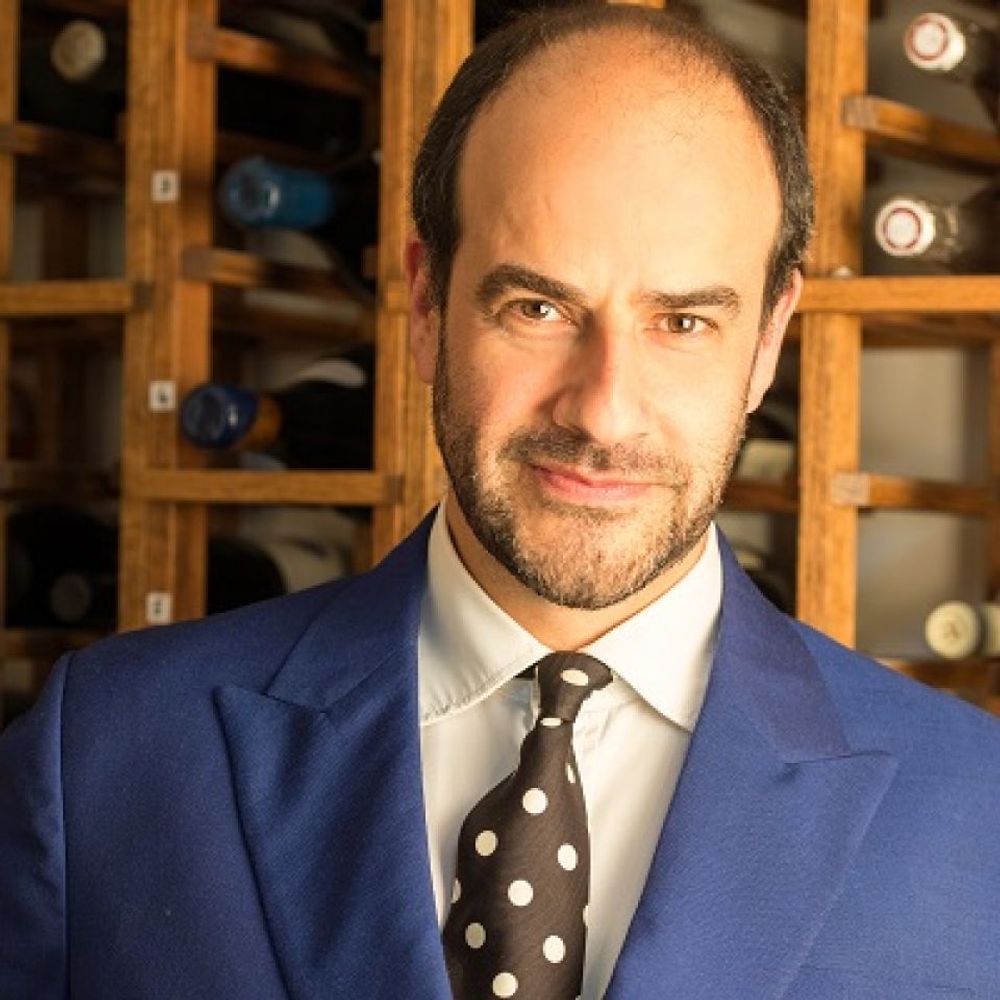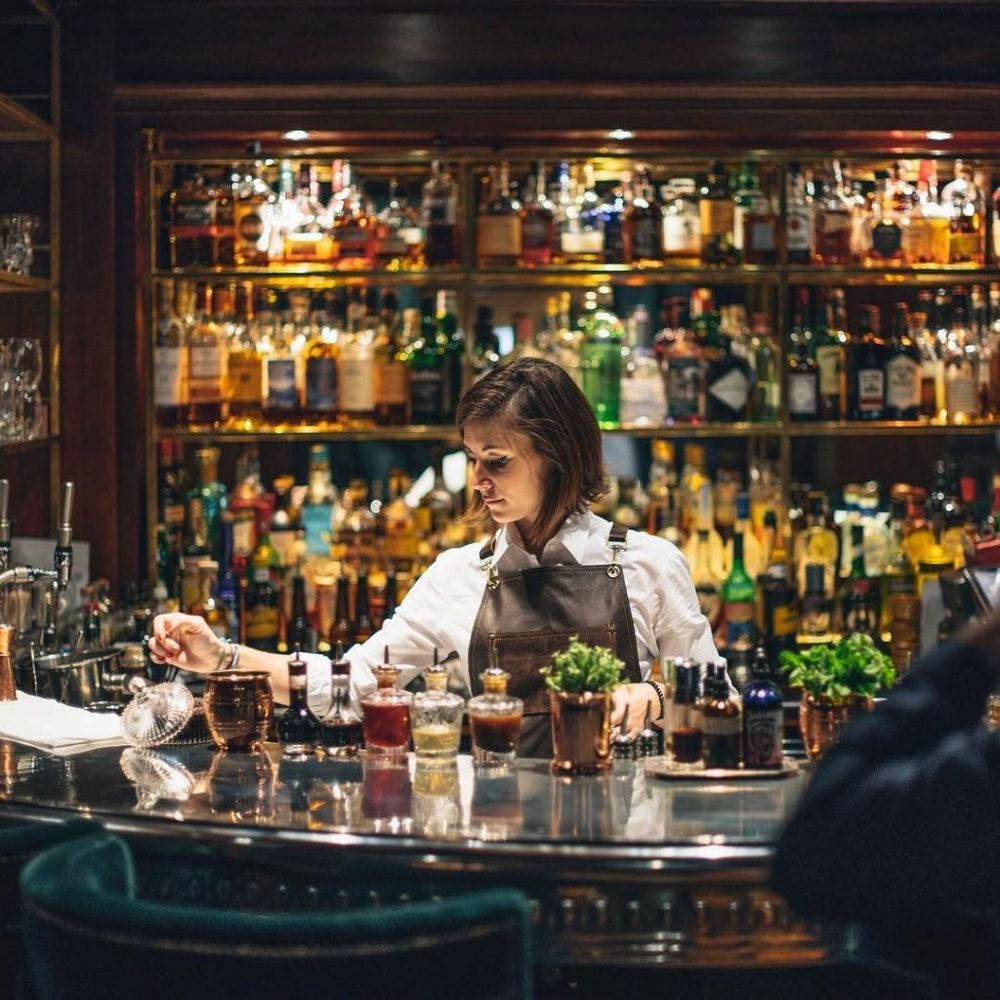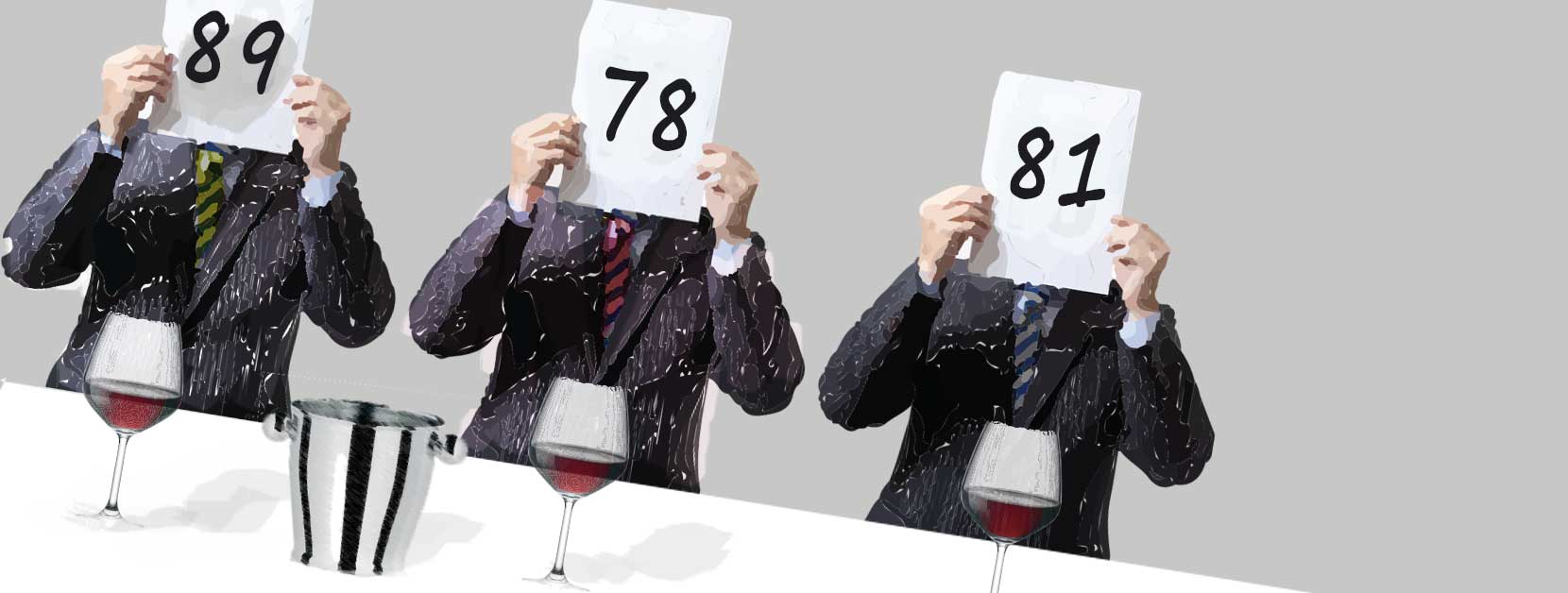You might think you have the best idea for a new drinks product, but can you convince a retailer, an importer, a sommelier or restaurant group to take it on? Here’s what those all those important drinks buyers that took part in the recent London Wine/Beer and Spirit Competitions are looking for.
What wine buyers are looking for in new products
Is being unique in the wine industry important?

Joanne Ahearne MW has experience as a supermarket buyer and winemaker
Joanne Ahearne MW, winemaker and consultant: When you’ve got some more volumes, being niche and with different grape varieties and you’ve got a million bottles to sell it’s not great obviously, but all sommeliers wanted to see me because they’ve never actually tasted delucia, so whether they want to put it on the list, that’s my job to make sure the wine is exciting enough, good enough for people to want to list. But to open the door and get time with sommeliers, buyers and wine retailers it’s important to have something no one else does.
Is branding important in the wine market?
David Forer MW, wine consultant: If you don’t have very precise branding, if you don’t have branding that is true and honest and most importantly powerful, and the people can hear and listen to, you are not going to make it. You’re going to have a really tough time to be in amongst a crowd of people to differentiate yourself. So yes, you have to be super attentive to your branding, but at the same time just don’t be in a community room full of people trying to figure out ‘oh what should I bring in’. You actually have to figure out honestly in your soul what are you trying to make, what kind of product you’re trying to make and what consumers are you looking for and how they want to hear that message and build your brand around that.
Is presentation and packaging vital?

Robin Kick MW believes any good product has to have good packaging
Robin Kick MW, wine consultant: Absolutely. It’s vital. As a buyer it’s vital. I was once having a conversation at lunch with sommeliers and I asked them if it was just important to them? Because the consumer, their client can’t see the label. But they said it was still important. Before I knew about wine, I would choose wine by the label, and I still do, to some degree. Obviously I know a lot more, so I’m able to look at the region, look at the vintage, look at other indicators on the label to maybe sense what the wine might be like. But even as someone who has studied wine and worked in the wine business now for over 20 years, and being Master of Wine I obviously know quite a bit, but I don’t know everything. Nobody does. I still look at labels sometimes and choose wine in an area that I’m not aware of or familiar with based on the label, it does happen.
Are wine competitions and medals important?
Robert Neave, category buyer for wine at Star Pubs and Bars: I actually believe they’re very important because they give consumer’s a cue as to what the wine might be like. You need people to pick up your bottle of wine and having a medal is extremely important. What you don’t want is when you see some bottles with four or five medals on because it looks like you are not prioritising what is the important. A medal is great, just pick one.
What part does quality ultimately play?

Greg Sherwood MW says it is about getting the quality, price and packaging right
Greg Sherwood MW, fine wine buyer, Handford Wines: You know, as a gatekeeper you’re never going to buy a wine even if it’s got a good label if the quality is not there. It’s certainly the first box you tick. The next thing you look at is price and its packaging. Those three things are the virtuous triangle and if you get them all right you know you’re quite likely to have a chance with a lot of producers. You should not have too much to worry about. Somebody will buy it, you will sell all your wine.
Is the UK still the place to make it for a wine looking to build international exports?
Philip Harden MW, fine wine consultant and investor: I think the point about UK is, because it’s been such a big importer of Bordeaux, of Burgundy and all fine wines around the world for hundreds of years, and was one of the early adopters of New World wine it’s a really competitive market place. So if you can succeed in the UK, and your wine can succeed here, then you’re going to make it globally. It’s almost like a test taste.
How important is being able to deliver value for money?
Simon Field MW, wine buyer at Berry Bros & Rudd: I think so. In both the on-trade and off-trade you do reach a certain price point where reputation perhaps supersedes everything, when you’re entering a spectrum of luxury goods and at that point often the more expensive the wine is, the more it’s valued. So, to know the quality of something and the value of nothing is quite relevant at that end of the market, but in the really tight mid price point, the mid price range, you really have to get it right. The presentation, the balance of style, the overall feel of the wine and, of course, where you position it in the market.
What are the latest trends you are seeing in the wine market?

Demetri Walters says the ultimate trend is the ability to tell an authentic story
Demetri Walters MW, wine educator, Berry Bros & Rudd: It depends on who you talk to. If you talk to a fine wine merchant such as BBR or a fine wine wholesaler such as FMV then it all comes down to having an authentic wine. What does that mean? That means wine with a distinct sense of place, wines that really tell you where they come from using interesting, authentic, grapes and, I suppose, tell a story. There are so many wines out there that are repeat performances on the same theme, so we seek to represent as many of the well known themes as we possibly can and populate those with the best examples.
What do beer and spirits buyers think about the drinks they buy, what they make and where they sell them?
What does a great bar look like to you?
Dan Fisher, bartender, The Ned, London: That is totally up to somebody’s opinion. Some people like the dive bar, some people like something classy and swanky. But it’s not about where you are, it’s about who you’re with. As long as you’ve got good company, and there’s good quality spirits, as long as everything is of good quality and you have a great time.
How would you define a great cocktail?

The Bloomsbury Club Bar: making the ultimate cocktail
Charlotte Charret, head bartender, Bloomsbury Club Bar : A good cocktail is not just about how it looks. You can have a really simple glass, and beautiful product inside then it can be just as good as food. When you eat, if the taste and quality of the food is good then you’re really happy. For me it’s exactly the same in cocktails. You need to have first the taste, and after that the look.
Does quality make a good drink/brand?
Stefano Tatti, head bartender, Craft London: The quality is the main thing, but I guess the storytelling is always a good part of what makes a nice product. It gives the bartender the opportunity to talk to and play with their guests, to entertain them and make the experience even more memorable. I like working with truly honest products. When you can talk about what they stand for, their traditions. It’s always good to work with a product that has been innovated in a very good way.
How important is packaging to you in terms of how a product is perceived?
Aurelie Montana, bartender, Corinthia Hotel: I think it will influence more on the price than the quality. If you spend a lot of money on packaging, I think you have a better chance of asking a higher price than the real quality of the product deserves. That said if a product does not have good quality packaging, then you are not going to think too highly of the drink inside.
What impact do competitions have on the beer market?
Ros Shiel, secretary of the British Guild of Beer Writers: I think competitions have become more important as the market has grown. The consumer is now confronted with a very busy beer aisle or a bar with dozens of pub clips, so how can you, unless you know the market, and what the brands are already like, how can you differentiate, how can you make a choice? Having a beer with a medal or a label or on the pub clip gives you some kind of reassurance that it has been given a mark of quality, that other people, that experts have tasted this beer and found it to be an award winning beer. And I think for an initiated beer drinker, that can be pretty reassuring.
What are the key beer trends at the moment?
Lolly Watkins, beer sommelier and DrinkTV manager: Trends in beer are kind of predictable with the seasons, as well as what hops are being produced at the moment. If there’s a new hop that comes out, a lot of breweries will rush to buy them hops and brew a new IPA or Pale Ale using those hops. Seasons are important because in the summertime you’re going to get a lot of fresh lagers, you’re going to get a lot of beautiful cultures come out and during the wintertime you’re going to get really beautiful flavours for porters and dark ales. So it absolutely depends on the time of year with regards to what beer is going to be popular.






























